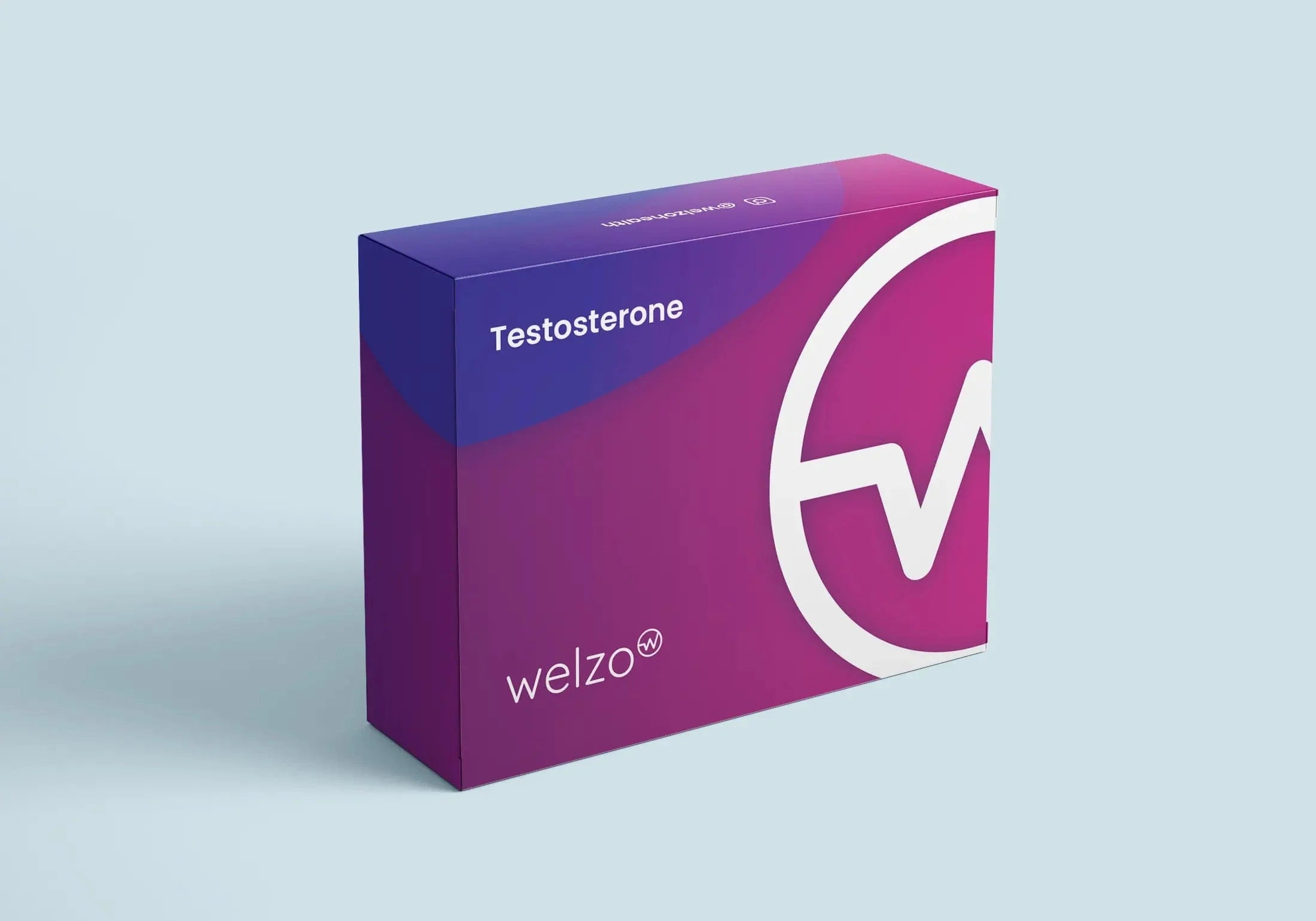Testosterone in Women: Signs, Symptoms, Reduce Levels and Causes


Testosterone, although typically associated with males, plays a significant role in the female body as well. In women, testosterone is produced primarily in the ovaries and adrenal glands. Small amounts are also synthesised in the peripheral tissues. The production of this hormone is regulated by the luteinising hormone (LH) and the follicle-stimulating hormone (FSH), both of which are released by the pituitary gland. "Although the amounts produced are much lower than in males, the presence of testosterone is crucial for various physiological processes in women", mentions Dr. Elizabeth Miller, a leading endocrinologist in the UK.
For females, testosterone aids in the maintenance of bone density, muscle strength, and mass. It also has a role in the production of red blood cells and the distribution of fat in the body. Furthermore, it’s pivotal in regulating mood, cognitive abilities, and influencing sexual desire. "Without adequate levels of testosterone, women might experience a range of health issues including osteoporosis and diminished muscle strength," states Dr. Sarah Johnston, a prominent researcher in women's hormonal health.
While both men and women require testosterone for overall health, the amounts and specific functions differ between the sexes. In males, testosterone is primarily responsible for developing secondary sexual characteristics during puberty, like facial hair and a deeper voice. Additionally, it maintains male reproductive tissues, promotes increased muscle and bone mass, and influences sperm production. In women, as already mentioned, its functions revolve around bone density, muscle strength, mood regulation, and sexual desire. Thus, while the hormone serves some common purposes in both genders, its dominance and key roles shift depending on the sex.
Elevated testosterone levels in women can lead to a range of observable physical changes. These include an increase in facial and body hair (hirsutism), acne or oily skin, deepening of the voice, and male-pattern baldness. Moreover, some women might notice an enlarged clitoris and decreased breast size. "It's essential for women to note these changes, as they can sometimes be indicative of more severe underlying conditions like polycystic ovary syndrome (PCOS)", highlights Dr. Emily Richardson, a leading gynaecologist.
Yes, elevated levels of testosterone in women can also influence emotional and mental health. Symptoms might encompass mood swings, irritability, increased aggressiveness, and sometimes even depression. Research from the University of Cambridge suggests that higher testosterone levels can also influence risk-taking behaviours in women.
High testosterone levels can disrupt a woman's menstrual cycle, leading to irregular periods or even amenorrhea (absence of menstruation). This hormonal imbalance can also reduce fertility, making it difficult for women to conceive. "It's a complex interplay of hormones, and an excess of testosterone can certainly upset the balance needed for regular ovulation," explains Dr. Lauren Walker, a fertility specialist.

Buy Testosterone Blood test online here.
Absolutely. One of the primary symptoms of low testosterone in women is chronic fatigue or decreased energy levels, irrespective of adequate sleep. Women might find themselves feeling constantly tired or lacking the enthusiasm to engage in everyday activities.
A dip in testosterone levels can result in a diminished libido or sexual desire in women. Alongside, it might also lead to vaginal dryness, making intercourse painful. "Hormonal balance is essential for a healthy sexual life. Low testosterone can be a significant factor in reduced arousal and satisfaction for women", elucidates Dr. Natasha Lewis, a sexual health consultant.
Testosterone plays a role in mood regulation and cognitive functions. Women with low levels might experience mood swings, bouts of depression, or increased anxiety. Cognitive effects might encompass difficulties in concentrating, memory lapses, and a general feeling of mental fogginess. "The brain is incredibly sensitive to hormonal changes, and testosterone is no exception," says Dr. Caroline Hughes, a neuropsychologist based in the UK.
Polycystic Ovary Syndrome (PCOS) is one of the predominant causes of elevated testosterone levels in women. PCOS is an endocrine disorder characterised by an ovulation dysfunction and polycystic ovaries. Women with PCOS often have higher levels of androgens, including testosterone. This elevation can lead to symptoms like irregular menstrual cycles, excessive body and facial hair, and acne. "PCOS directly impacts the hormonal balance, causing a surge in testosterone levels in many women," says Dr. Rebecca Taylor, a renowned endocrinologist in the UK.
Yes, both adrenal tumours and congenital adrenal hyperplasia (CAH) can result in elevated testosterone levels in women. Adrenal tumours, although rare, can produce excess amounts of androgens. On the other hand, CAH is a genetic disorder affecting the adrenal glands, leading them to produce an abnormal amount of hormones, including testosterone. "Both conditions, though distinct, can significantly alter testosterone production, and early diagnosis is crucial for effective management", states Dr. Samantha Price, a leading adrenal specialist.
Certain medications can inadvertently lead to increased testosterone levels in women. Some antipsychotic drugs, antiepileptics, and even specific steroid medications can cause this effect. It's vital for women to be aware and consult their healthcare provider if they observe symptoms of high testosterone after starting a new medication. "Always be cautious of side-effects when starting new treatments and communicate any unexpected changes to your doctor", suggests Dr. Ian Smith, a UK-based pharmacologist.
Several factors can lead to a decrease in testosterone levels in women. Ageing is a primary factor, as hormone production naturally declines with age. Additionally, conditions like hypopituitarism, wherein the pituitary gland fails to produce normal levels of hormones, can also cause a drop. Surgical removal of the ovaries, certain autoimmune diseases, and chronic illnesses can further decrease testosterone levels.
As women approach and undergo menopause, the levels of several hormones, including testosterone, begin to fluctuate and generally decrease. The ovaries, which are a primary source of testosterone, reduce their production of this hormone after menopause. "Many symptoms associated with menopause, like reduced libido or fatigue, can be attributed to these lowered testosterone levels", says Dr. Helen Clarke, a specialist in women's health.
Certainly, external factors like excessive alcohol consumption, certain medications, and chronic stress can lower testosterone levels. Additionally, a sedentary lifestyle, lack of sleep, and poor diet choices can also influence testosterone production negatively.
Yes, there are medications specifically designed to either increase or decrease testosterone levels, depending on an individual's needs. Women with PCOS might be prescribed birth control pills or anti-androgen medications to lower testosterone. On the other hand, testosterone replacement therapy is available for women experiencing symptoms of testosterone deficiency.
A balanced diet and regular exercise can play a pivotal role in maintaining optimal testosterone levels. Consuming foods rich in zinc, vitamin D, and omega-3 fatty acids can support testosterone production. Exercise, especially resistance training, has been shown to boost testosterone levels naturally. "The balance between the right nutrients and physical activity can harmonise the body's hormonal levels, including testosterone", says fitness expert, Lucy Reynolds, from the UK.
Chronic stress can drastically affect testosterone production in women. The body, when stressed, produces higher levels of cortisol, a hormone that indirectly lowers testosterone. Maintaining good mental health, practising relaxation techniques, and ensuring proper sleep can help in keeping testosterone levels stable. "The interplay between mental health and hormonal balance is intricate, and managing stress is crucial for overall well-being," opines Dr. James Redford, a UK-based psychologist.
Yes, excessively high levels of testosterone in women can be concerning. Elevated testosterone can lead to a range of symptoms like menstrual irregularities, infertility, and signs of masculinization such as increased facial hair and deepening voice. Furthermore, underlying conditions like PCOS or adrenal gland disorders might be the cause, which necessitates medical attention. "While a certain range of testosterone is normal and beneficial, extremely high levels can signal underlying medical issues and should not be overlooked", states Dr. Lisa Armstrong, an endocrinologist.
Women can take testosterone boosters, but it should be under strict medical supervision. These boosters are usually prescribed when women have clinically low levels of testosterone, affecting their overall well-being. However, self-administration without proper diagnosis can lead to adverse effects. "Before considering testosterone boosters, consult with a healthcare professional to ensure they're right for you," advises Dr. Katherine O'Brien, a hormonal health specialist in the UK.
Signs of a hormone imbalance can vary but often include irregular periods, unexplained weight gain or loss, excessive hair growth or hair loss, fatigue, mood swings, and changes in libido. If you notice such symptoms persistently, it's crucial to consult with a medical professional for a proper evaluation.
Testosterone levels in women are typically measured using a blood test. This test can be conducted at any time, though some specialists might prefer it to be done at a particular phase of the menstrual cycle for more accurate results. Once the sample is taken, it's analysed in a lab to determine the amount of testosterone in the bloodstream.
Yes, pregnancy can indeed influence testosterone levels. During pregnancy, the baby's adrenal glands and the placenta produce testosterone, which can lead to slightly elevated levels in the mother. However, these increases are generally within a range considered normal for pregnant women.
Testosterone levels in women usually peak in their late 20s and then gradually decrease with age, especially after menopause. However, individual variations can occur, and many factors, including overall health, lifestyle, and genetics, can influence these levels.










Plus get the inside scoop on our latest content and updates in our monthly newsletter.